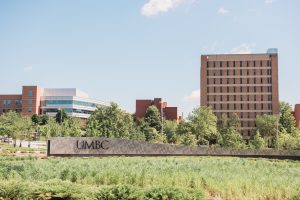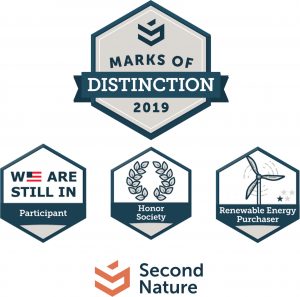 The Climate Action Plan, CAP, details UMBC’s plans and ongoing commitment with Second Nature (formerly ACCUPC) to achieve net-zero greenhouse gas emissions. The 2020 CAP builds upon the mission outlined in the first CAP and provides a road map for a continuous reduction of UMBC’s emissions. The 2020 CAP identifies a goal of net-zero greenhouse gas emissions by 2050 while improving UMBC’s adaptive capacity to a changing climate.
The Climate Action Plan, CAP, details UMBC’s plans and ongoing commitment with Second Nature (formerly ACCUPC) to achieve net-zero greenhouse gas emissions. The 2020 CAP builds upon the mission outlined in the first CAP and provides a road map for a continuous reduction of UMBC’s emissions. The 2020 CAP identifies a goal of net-zero greenhouse gas emissions by 2050 while improving UMBC’s adaptive capacity to a changing climate.
The CAP summarizes currently existing economically and technically feasible strategies towards achieving net-zero emissions; while acknowledging that future emission reductions may have to come from the procurement of carbon offsets. However, as technology progresses there may be alternative emission reduction options to allow UMBC to meet its goal of net-zero emissions more efficiently. The plan sections, derived from the inputs of the Climate Action Steering Committee and associated working groups, describe the methods, strategies, associated costs, estimated emissions reductions, and projected timelines for the implementation of the various carbon reduction actions. We invite you to explore the Office of Sustainability’s interactive dashboard and to view UMBC’s progress on Second Nature’s Reporting Dashboard.

